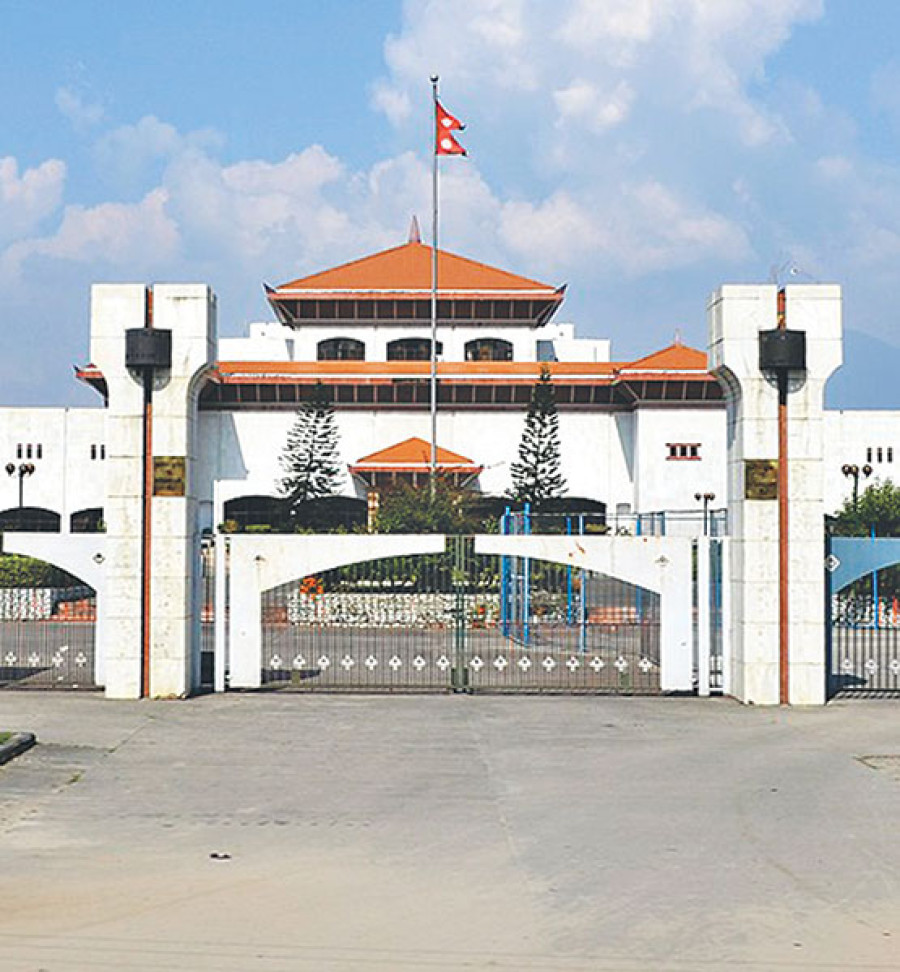National
Speaker: House panels to be formed with or without NC
The Parliament Secretariat is preparing to form parliamentary committees even if the Nepali Congress does not cooperate in the process. Formation of the House committees, also called mini parliaments, has been delayed due to differences between the ruling and opposition parties over their leadership.
Binod Ghimire
The Parliament Secretariat is preparing to form parliamentary committees even if the Nepali Congress does not cooperate in the process. Formation of the House committees, also called mini parliaments, has been delayed due to differences between the ruling and opposition parties over their leadership.
The opposition party has demanded the chair of at least four of the 16 House committees while the ruling Nepal Communist Party is willing to give the NC leadership of only one committee.
The Speaker of the House of Representatives and chairman of the National Assembly have authority to form the committees. However, there is a general practice of finding consensus on the matter.
“I have asked all the parties for their names for the respective committees. Parties other than the Nepali Congress and the Rastriya Janata Party Nepal have already submitted the names,” Speaker Krishna Bahadur Mahara told journalists at an interaction on Thursday.
“We can’t wait anymore. I believe the remaining parties will forward the names very soon. The committees will be formed in a couple of days even if they don’t send the names.”
Mahara said the NC, however, has already sent names for the Parliamentary Hearing Committee which will be formed on Friday. Among the 16 committees, 10 are in the Lower House and four in the National Assembly while two are joint committees.
Hardly eight months before the constitutional deadline to formulate around 100 Acts for full-fledged implementation of the new charter, the federal parliament has been without business due to the government’s delay in finalising necessary bills.
The House of Representatives currently has only one bill, related to Audit Act, to discuss in its meeting on Friday. Parliament had busy days for around a month when it deliberated on the government’s policies and programmes. Now, the only business left for it is to discuss and endorse around 100 Acts including amendments to some laws to align them with the new constitution.
Either new Acts have to be formulated or the existing ones amended to implement the 308 articles of the constitution. The statute requires legislation to guarantee fundamental rights within three years of promulgation of the constitution and other Acts within a year since the first meeting of the Lower House. This means that Acts related to fundamental rights need to be in place by September 15 and the rest by March 4 next year.
The statute was promulgated on September 20, 2015 while the federal parliament first met on March 5. Speaker Krishna Bahadur Mahara said he had raised the issue repeatedly with the prime minister and other ministers, to no avail.
“I have been told that the government has sensed the urgency of the matter and is preparing to register the bills in Parliament very soon,” Mahara told the interaction on Thursday. The eight bills drafted are in the process of getting Cabinet approval before they are registered in Parliament.
Mahara said he was hopeful of the government keeping its commitment and giving business to the House within a couple of days. Among the 100 Acts that need to be endorsed, some 40 are related to guaranteeing fundamental rights.
The Ministry for Law and Justice is the focal ministry for drafting bills which require Cabinet approval before their registration in the Parliament Secretariat.




 14.24°C Kathmandu
14.24°C Kathmandu















